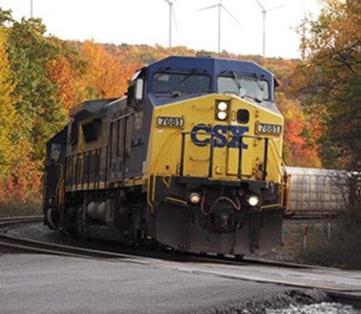
The Federal Highway Administration (FHWA) had given its stamp of approval to CSX Transportation’s proposed reconstruction of the Virginia Avenue Tunnel in Southeast Washington, D.C., ending a three-year-long environmental review process.
The tunnel project is privately-funded by CSX, but because construction will impact federal and District property, approval from FHWA and the D.C. Department of Transportation are necessary.
In August, the FHWA delayed issuing a record of decision (ROD) on the project, at the behest of Congresswoman Eleanor Holmes Norton, D-D.C., to give the DC Council a chance to review the Final Environmental Impact Statement (FEIS) and other aspects of the plan. But, on Nov. 4, the federal agency greenlighted use of the roadways, including Interstate 695 ramps, needed to complete the project.
“After a consideration of the effects of the FHWA approval action on the natural, human and built environments and reasonable alternatives to those actions based on information presented in the FEIS…the FHWA decision is to approve the short-term closure of I-695 ramps located at 6th and 8th Streets SE the occupancy of a portion of the 11th Street Bridge right-of-way located on I-695,” the decision read.
“The basis for this ROD is supported by the information presented in the FEIS, supporting technical documents, the associated project record, and input received from the public and interested District of Columbia and federal agencies,” the ROD continued. “The FHWA considered the impacts of the Project and alternative courses of action under NEPA (National Environmental Policy Act) while balancing the needs of CSX, the project sponsor, to reconstruct its tunnel facility located under Virginia Avenue SE with public and agency concerns regarding the Project.”
FHWA supported CSX’s preferred alternative, which involves replacing the 3,800-foot, 110-year-old tunnel with two new permanent tunnels constructed sequentially. The tunnels will be rebuilt to accommodate double-stacked intermodal freight trains and to alleviate a chokepoint along CSX’s eastern seaboard freight rail corridor, which connects Mid-Atlantic and Midwest states.
“The Virginia Avenue Tunnel is a critical piece of our national and regional transportation infrastructure,” said Louis E. Renjel, Jr., vice president of strategic infrastructure initiatives for CSX, which is headquartered in Jacksonville, Fla. “Reconstructing the aging tunnel will eliminate a long-standing rail bottleneck that impacts freight and commuter rail, and it will increase the network’s capacity ahead of anticipated growth in freight-rail traffic.”
Some residents who live near the VAT reject FHWA’s decision, however, and say the project should be halted until the DC Council completes its comprehensive Rail Plan study that is currently underway.
“This decision shows that the public has never been treated fairly. Our concerns – namely the grave public health and safety risks posed by the project and how passenger and commuter rail in the District can expand – have consistently been ignored. And we know now that DDOT had pre-approved CSX’s preferred plan from the very beginning before any environmental review had been conducted,” said Helen Douglas of DCSafeRail, the group against the expanded tunnels. “This project should NOT be granted any permits until the appropriate answers are provided, including waiting for completion of the Council’s Rail Plan so that its analyses and conclusions are part of a new or modified environmental review.”
CSX said community input has helped shape the project and they will continue to work with residents to address their concerns.
“While this decision is the end of the Federal environmental review process, it is just the beginning of a new phase of CSX’s relationship with the community,” Renjel said in his statement. “We are committed to doing this project the right way; safely, respecting our neighbors and working closely with residents and businesses to minimize impacts and to ensure that they are informed about construction plans.”


